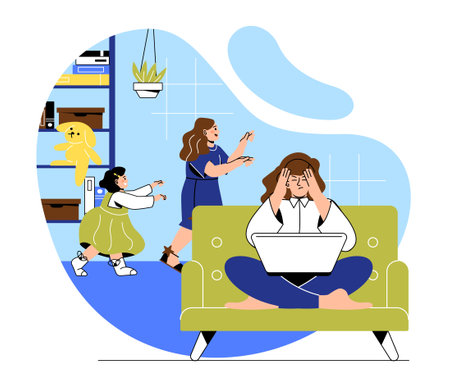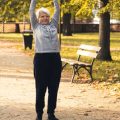Introduction to Speech and Language Therapy in Neurological Care
Speech and Language Therapy (SLT) plays a vital role in the management and rehabilitation of individuals with neurological conditions in the UK. These conditions may include stroke, Parkinson’s disease, multiple sclerosis, traumatic brain injury, and motor neurone disease, among others. The primary aim of SLT is to support patients who experience difficulties with communication, speech, language, voice, and swallowing as a result of their neurological impairments.
In the UK healthcare system, SLT services are provided across a variety of settings including acute hospitals, community clinics, rehabilitation centres, care homes, and even patients’ own homes. Multidisciplinary collaboration is a cornerstone of care; speech and language therapists work closely with neurologists, occupational therapists, physiotherapists, nurses, and family members to create holistic care plans tailored to each patient’s needs.
The significance of SLT within the UK cannot be understated. Early intervention by skilled therapists has been shown to improve long-term outcomes for patients by enhancing communication abilities and promoting safe eating and drinking practices. This not only supports the individual’s quality of life but also aids in reducing hospital admissions and long-term care costs. As such, speech and language therapy remains an integral component of neurological care pathways throughout the NHS and private sectors.
Common Neurological Conditions Supported by SLT
Speech and Language Therapy (SLT) plays a vital role in supporting individuals living with neurological conditions across the UK. Many of these disorders impact communication, swallowing, and overall quality of life. Below is a summary of some of the most prevalent neurological disorders that benefit significantly from SLT interventions.
Prevalent Neurological Disorders in the UK
| Condition | Key Communication/Swallowing Challenges | How SLT Can Help |
|---|---|---|
| Stroke | Aphasia, dysarthria, apraxia, swallowing difficulties (dysphagia) | Assessment and therapy for speech, language, and safe swallowing; support for families and carers |
| Parkinsons Disease | Reduced voice volume (hypophonia), monotone speech, difficulty initiating speech, drooling, swallowing issues | Voice therapy (such as Lee Silverman Voice Treatment), strategies to improve articulation and swallowing safety |
| Multiple Sclerosis (MS) | Slurred speech, slowed rate of speech, problems with word finding and cognitive-communication, dysphagia | Therapy for clearer speech production, communication aids, compensatory strategies for eating and drinking |
| Motor Neurone Disease (MND) | Progressive loss of speech clarity, difficulties with swallowing, risk of aspiration | Augmentative and alternative communication (AAC) devices, advice on safe eating and drinking techniques |
The Importance of Early Intervention
Early identification and referral to SLT are crucial for people diagnosed with these neurological conditions. In many NHS trusts across the UK, multidisciplinary teams work closely to ensure patients receive timely assessment and tailored support. SLTs collaborate not only with patients but also with their families to develop practical strategies that foster independence wherever possible.

3. Assessment and Personalised Care Planning
In the UK, speech and language therapy for neurological patients begins with a comprehensive assessment process. This initial stage is essential for understanding each patient’s unique challenges related to communication and swallowing. Qualified speech and language therapists (SLTs) use a combination of standardised tools, informal observations, and patient interviews to build a detailed picture of an individual’s needs. These assessments may take place in various settings, including hospitals, outpatient clinics, or even the patient’s home, depending on their circumstances and mobility.
Multidisciplinary collaboration is a cornerstone of neurological rehabilitation in the UK. SLTs work closely with neurologists, occupational therapists, physiotherapists, dietitians, nurses, and social workers to ensure that all aspects of a patient’s health are considered. Regular team meetings foster open communication between professionals, allowing for the integration of diverse perspectives when planning care. This holistic approach ensures that interventions address not only speech and language difficulties but also any associated physical, cognitive, or emotional challenges.
Following assessment and team discussions, SLTs develop tailored intervention plans designed to meet each patient’s specific goals. These plans focus on maximising independence and quality of life—whether through improving speech clarity, supporting alternative communication methods like AAC devices, or addressing swallowing safety with modified diets and exercises. Care plans are regularly reviewed and adapted based on the patient’s progress and changing needs, ensuring that support remains relevant throughout their rehabilitation journey.
4. Therapeutic Approaches and Techniques
Speech and language therapy for neurological patients in the UK is built upon robust evidence-based practices, carefully tailored to meet individual needs. Therapists employ a variety of interventions, combining established techniques with person-centred care to optimise outcomes. Below, we explore some of the most widely used approaches in the British context.
Communication Partner Training
This approach recognises that effective communication extends beyond the individual patient. Communication partner training involves educating family members, friends, and carers on how to best support their loved one’s speech and language abilities. Training focuses on active listening, using clear language, allowing extra processing time, and employing supportive gestures or written cues. This collaborative method not only enhances daily interactions but also fosters social inclusion and emotional wellbeing.
Augmentative and Alternative Communication (AAC) Systems
For patients with significant speech difficulties, AAC systems provide vital support. In the UK, therapists assess each patient’s unique requirements before recommending appropriate tools, ranging from simple picture boards to high-tech speech-generating devices. These systems empower individuals to express themselves more freely and maintain autonomy in various settings. The table below summarises common AAC options:
| AAC Type | Description | Typical Users |
|---|---|---|
| Low-tech | Picture cards, communication books, alphabet boards | Individuals with limited motor skills or mild-moderate speech impairment |
| High-tech | Tablets with specialised apps, eye-gaze devices, voice output communication aids | Patients with severe speech impairment or progressive neurological conditions |
Supporting Dysphagia (Swallowing Difficulties)
Dysphagia management is a critical aspect of neurological care in the UK. Speech and language therapists work closely with patients and multidisciplinary teams to ensure safe swallowing and adequate nutrition. Strategies often include:
- Texture modification of food and fluids (e.g., pureed diets, thickened drinks)
- Postural adjustments during eating and drinking (e.g., chin-tuck technique)
- Swallowing exercises to strengthen muscles involved in swallowing
- Ongoing assessment and review to adapt plans as needed
Holistic and Individualised Care
The cornerstone of UK practice is an individualised approach—therapists consider personal goals, preferences, cultural background, and family involvement when designing intervention programmes. By integrating evidence-based therapies with holistic care principles, speech and language therapists help neurological patients regain confidence, improve quality of life, and maximise their communicative potential.
5. Experiences and Voices from Patients and Carers
Real-life Stories from Across the UK
The journey through speech and language therapy is deeply personal, yet the experiences of neurological patients and their families in the UK share many common threads. Patients often speak about the initial shock and frustration following a diagnosis—whether it be stroke, traumatic brain injury, or a progressive condition like Parkinson’s disease or multiple sclerosis. For many, communication difficulties can lead to feelings of isolation and anxiety. Carers echo these sentiments, describing the emotional toll it takes not only on the individual but also on close family members.
Challenges Along the Path
Accessing timely support remains a significant challenge for many families. Waiting lists for NHS speech and language therapy services can be long, particularly in some regions. Some carers have shared their determination in navigating complex healthcare systems, seeking additional help from charities or private therapists when NHS resources were stretched. The process of adapting daily routines—such as using communication aids or learning new techniques—can initially feel daunting. However, both patients and carers emphasise that persistence brings improvement over time.
Progress and Milestones
Despite these challenges, there are countless stories of progress that inspire hope. Patients often recall small but meaningful milestones: being able to say a loved one’s name again, making themselves understood over the phone, or participating in community activities with renewed confidence. Carers highlight the importance of celebrating these achievements, however modest they may seem. Many attribute progress not only to professional input but also to peer support groups and local community resources available across the UK.
The Emotional Impact
The emotional journey is complex. Some patients describe moments of grief for lost abilities, while others find strength in resilience and adaptation. Carers frequently mention feelings of pride when witnessing improvements, alongside occasional exhaustion and worry about the future. What comes through clearly is a sense of partnership between patients, carers, and therapists—a team approach that is central to rehabilitation in British practice.
A Message to Others
Many individuals who have experienced speech and language therapy wish to reassure others starting this journey: progress may be gradual, but each step matters. They encourage open communication with therapists, seeking out local support networks, and acknowledging every bit of progress along the way. These collective voices reflect the heart of speech and language therapy in the UK—patient-centred care grounded in empathy, perseverance, and hope.
6. Support Networks and Community Resources
Living with a neurological condition in the UK can present ongoing challenges, but a robust network of support services, charities, and peer groups are available to help individuals navigate their journey. Many patients and families find that these resources provide not only practical assistance but also a sense of community and understanding that is invaluable throughout the rehabilitation process.
Specialist Charities for Neurological Conditions
The UK is home to several well-established charities dedicated to supporting people with neurological disorders. Organisations such as the Stroke Association, Parkinson’s UK, the Motor Neurone Disease Association, and Headway (the brain injury association) offer tailored advice, helplines, information booklets, and access to local support groups. These charities often advocate for patient rights and raise public awareness about neurological conditions, ensuring that those affected have a voice at both local and national levels.
Community-Based Peer Support Groups
Many areas across the UK host regular peer-led support groups for individuals with neurological conditions and their families. These gatherings provide a safe space to share experiences, discuss challenges, and learn from others facing similar journeys. Some groups focus specifically on speech and language difficulties, offering practical tips for communication and emotional encouragement. Local NHS trusts or councils may be able to direct patients to appropriate peer networks in their area.
Accessing Speech and Language Therapy Outside the Clinic
Community centres and charities frequently collaborate with speech and language therapists to run workshops or drop-in sessions outside of formal clinical settings. This allows individuals to continue practicing their communication skills in real-world environments while staying connected with professionals who can provide guidance and feedback. For those unable to travel, some organisations offer online forums or video-based group sessions, making support more accessible than ever before.
Practical Assistance and Advocacy Services
Beyond emotional support, many UK-based organisations assist with navigating benefits systems, accessing mobility aids, or arranging transport to therapy appointments. Advocacy services are available to help patients understand their rights within the NHS and ensure they receive appropriate care tailored to their needs. For carers and family members, there are also dedicated resources offering respite care advice, training courses, and peer mentoring schemes.
In summary, the breadth of support networks and community resources in the UK plays an essential role in helping neurological patients maintain independence, confidence, and a positive outlook. By tapping into these services—alongside professional speech and language therapy—individuals can build strong foundations for ongoing recovery and quality of life.
7. Looking Ahead: Innovations and Future Directions
The landscape of Speech and Language Therapy (SLT) for neurological patients in the UK is evolving rapidly, driven by both technological advancements and a deeper understanding of individual patient needs. As we look to the future, several emerging trends are set to shape the way SLT is delivered and experienced.
Digital Tools and Teletherapy
One of the most significant developments in recent years has been the integration of digital platforms into therapy provision. Teletherapy, once considered an adjunct, has become a mainstay, especially following the COVID-19 pandemic. Secure video consultations now enable patients across the UK, including those in rural or underserved areas, to access specialist care without geographical barriers. In addition, mobile apps designed for home practice are empowering patients to take an active role in their rehabilitation, offering interactive exercises tailored to their specific neurological condition.
Personalised and Data-Driven Approaches
Emerging research is placing a strong emphasis on personalised care. Machine learning and artificial intelligence are beginning to be used for data analysis, helping therapists identify subtle patterns in speech and language recovery. This allows interventions to be more precisely tailored to each individuals unique challenges and goals, ensuring optimal outcomes for every patient.
Integration with Multidisciplinary Teams
The future of SLT in the UK also lies in stronger collaboration within multidisciplinary teams. By working closely with neurologists, occupational therapists, psychologists, and carers, speech and language therapists can deliver truly holistic care. Digital record-sharing tools are making this integration smoother than ever before, promoting continuity and consistency throughout the patient journey.
Ongoing Research and Innovation
Research remains at the heart of innovation in SLT. Ongoing studies in British universities and NHS trusts are exploring everything from brain-computer interfaces that translate neural signals into speech, to virtual reality environments that simulate real-life communication scenarios for immersive practice. These breakthroughs hold great promise for enhancing both assessment accuracy and therapeutic effectiveness.
Empowering Patients for Tomorrow
As these innovations continue to unfold, one thing remains clear: the focus is squarely on empowering neurological patients across the UK to regain confidence, independence, and quality of life through accessible, evidence-based speech and language therapy. By embracing new technologies and research insights while remaining grounded in compassionate care, SLT professionals are well-positioned to meet the evolving needs of every patient they serve.


